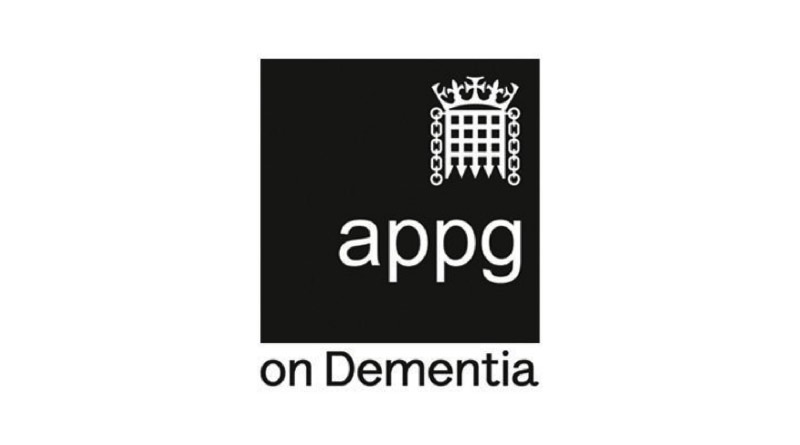New Inquiry into Barriers to Dementia Diagnosis Launched by All-Party Parliamentary Group on Dementia
Call for people with dementia and their carers, academics and health and care professionals to share their experiences and insights of dementia diagnosis
Today, the All-Party Parliamentary Group (APPG) on Dementia has launched a new inquiry into barriers to dementia diagnosis, with a particular focus on rurality and deprivation.
During the Covid-19 pandemic, dementia diagnosis rates dropped from 67.6% (January 2020) to 62.5% (December 2022). Since then, diagnosis rates have stagnated, leaving many without access to the care and support a diagnosis can bring. Diagnosis rates also vary significantly across England, with a 70.6% diagnosis rate in South Yorkshire and South West London’s Integrated Care Systems (ICS) compared to 52.4% in Herefordshire and Worcestershire ICS.
From 10-24 February, the APPG invites evidence submissions from people living with dementia (or carers with significant involvement in helping someone access a diagnosis) via a survey on diagnosis. The APPG will also accept submissions from academics, professionals working in the NHS, social care, public health, for an NHS local authority or for a VCSE via their call for written evidence.
Previous research by Alzheimer’s Society has shown that rurality and deprivation are key factors in this diagnostic variation (1). Through its new inquiry, the APPG will build on this evidence by gaining a better understanding of contributing factors and potential solutions to variation in diagnosis rates, with a view to providing recommendations to central and local Government based on intelligence gathered.
The APPG on Dementia is a cross-party group of Parliamentarians chaired by Debbie Abrahams, Labour MP for Oldham East and Saddleworth, with secretariat support provided by Alzheimer’s Society. The group is united by a shared interest in dementia.
Debbie Abrahams MP, Chair of the All-Party Parliamentary Group on Dementia, said:
“I’m excited to launch the APPG’s latest inquiry on barriers to dementia diagnosis today, which will specifically investigate regional barriers to diagnosis like rurality and deprivation. As the Government presses ahead with its Levelling Up agenda, it’s vital we develop our understanding of these regional barriers to ensure everyone can access a timely and accurate dementia diagnosis regardless of where they live.”
Right now, too many people are waiting too long to get an accurate dementia diagnosis. Since the Covid-19 pandemic, dementia diagnosis rates have fallen significantly and failed to rise back up. More than 30,000 additional people are waiting for a diagnosis now compared to pre-pandemic levels, with some left to cope alone. For us to stand a chance of improving care and support post-diagnosis, we need to ensure we have data to demonstrate the scale of barriers to diagnosis, and that everyone who needs a diagnosis gets one as soon as possible.
“I really encourage everyone to participate in our inquiry in the next couple of weeks – we have a survey specifically designed for people living with dementia and their carers, and a call for evidence for academics, professionals, and other stakeholders, too. We’d love to hear from you so we can ensure we gather as much evidence as possible.”
Fiona Carragher, Director of Research and Influencing at Alzheimer’s Society, said:
“It’s concerning that there are still drastic differences across England in diagnosis levels. While there are ongoing efforts to improve diagnosis rates, the national 66.7% target has not been met since the start of 2020. We must remove the current postcode lottery of dementia diagnosis – so that everyone who needs one can access one, regardless of where they live. The sooner people with dementia get an accurate diagnosis, the sooner they can access the support they need.
“The APPG’s crucial inquiry will help us understand at a deeper level the barriers across the country so that we can tackle them head on. People with dementia and carers sharing their experiences of diagnosis will play a huge role in helping us to do this.”






